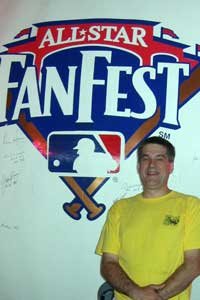Viewers who could stomach sitting through the Pirates' trouncing by the Yankees on Sunday were treated, in a manner of speaking, to the major-league debut of Masumi Kuwata. The relief pitcher, a star in Japan since the '80s, is 39 years old.
In making note of Kuwata's advanced age, media reports are circulating the name Diomedes Olivo for the first time in years. Olivo, a lefthanded pitcher and Dominican Republic native, was 41 the first time he appeared in the majors. That also was for the Pirates but during much better times: 1960, the year they beat the Yankees in the World Series. (Some question has persisted about his actual age; for example, a blurb in The Sporting News at the time listed him at 45. But the sources that count list him as being born Jan. 22, 1919.)
I'd never heard of Olivo before I read about his death in 1977, but I always was curious about a player who was so old by the time he made it to the majors. In those days, baseball scouts weren't very prevalent in Latin America (with the exception of those employed by the Washington Senators). Buoyed by the success of Roberto Clemente, the Pirates started taking a closer look at the talent to the south. Apparently, Diomedes still had enough in the tank to warrant a call to The Show. He pitched pretty well, too, in four appearances before returning to the minor leagues.
In 1961, he was lights out for the International League pennant-winning Columbus Jets, compiling a 1.98 earned run average. So the Pirates brought him back for 1962, when he qualified for official rookie status at age 43, breaking Satchel Paige's record. In 62 games, he posted a 5-1 record with 7 saves and a stellar 2.77 ERA. Noting his success during the year were a number of feature stories, including the Sports Illustrated article "An Elderly Diomedes in the Big Show," written by future Pittsburgh Steelers announcer Myron Cope.
Olivo's fame was short-lived. The Pirates shipped him off to St. Louis as part of the ill-fated package that sent the extremely popular Dick Groat to the Cardinals for Julio Gotay, who stunk in Pittsburgh, and Don Cardwell, who wasn't much better. Diomedes faded quickly in St. Louis, exiting the majors after dropping his first five decisions in '63.
On June 7 of that year, he gave up a game-winning home run to Duke Snider, a future Hall of Famer who had seen better days and was playing out the string with the Mets. That was just about the last straw for the Cardinals; Olivo appeared in his final major-league game five days later. He was the last active player to have been born before 1920, by the way.
He had a brother, Federico - more popularly known as Chi Chi - who pitched four years with the Braves, and was "only" 36 in his rookie-qualifying season.
Both Olivo brothers died in February 1977, but I have yet to find information to suggest their deaths so close together represented anything other than coincidence.
Subscribe to:
Post Comments (Atom)









No comments:
Post a Comment